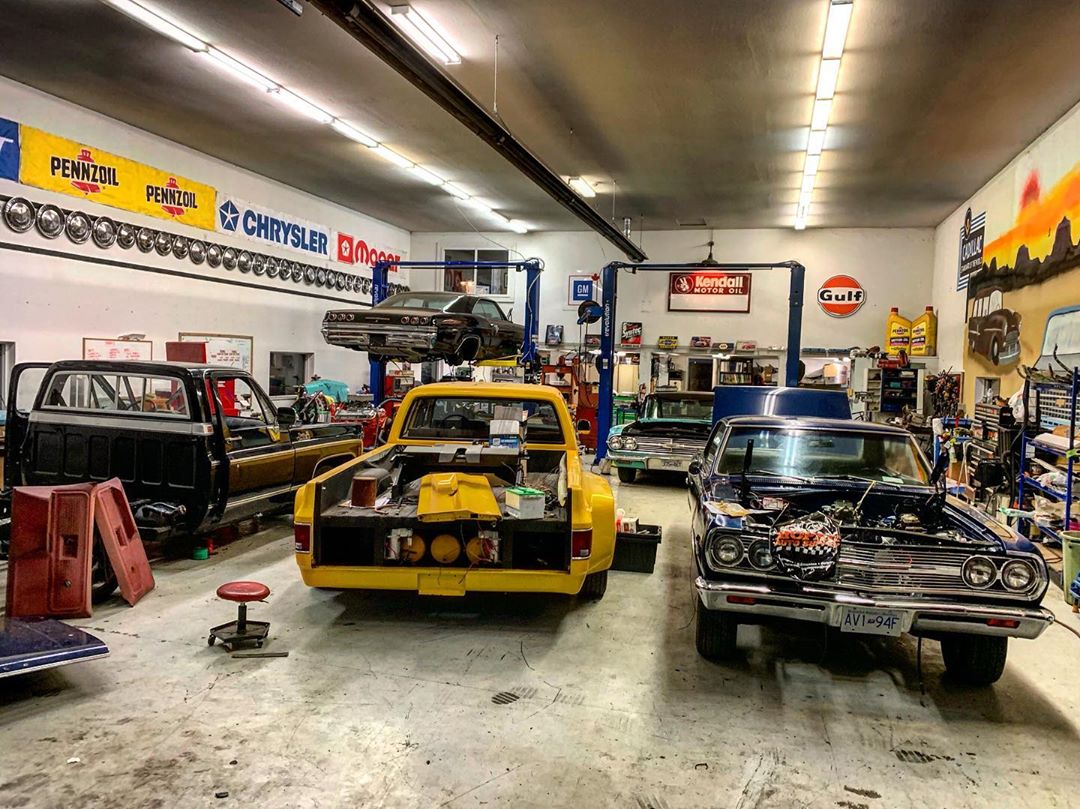All Categories
Featured

[/image]
A well-maintained engine is the vital to your automobile's longevity and top efficiency. Routine engine tune-ups not only improve fuel efficiency but likewise lower the probability of unexpected failures. Whether you're an auto enthusiast or somebody who simply intends to prevent expensive repair services, these engine tune-up pointers will certainly keep your car running like a desire.

- Change the Spark Plugs. The trigger plugs stir up the air-fuel combination in your engine, and their performance directly impacts engine efficiency. Gradually, ignition system can wear, causing misfires, reduced fuel economic situation, and sluggish acceleration.
Throughout a tune-up, check and replace trigger plugs if they show indications of wear, such as soot build-up, corrosion, or splits. Relying on your vehicle, trigger plugs might require to be replaced every 30,000 to 100,000 miles.
- Examine the Ignition System. Your automobile's ignition system, that includes the ignition coils, supplier, and wires (if suitable), is liable for supplying the trigger that powers your engine. Damaged ignition components can trigger beginning issues and harsh engine operation.
Look for damaged or put on components and replace them throughout your tune-up. Guaranteeing a healthy ignition system will enhance engine integrity and performance.
- Tidy or Change the Air Filter. A clean air filter allows your engine to "take a breath" appropriately by guaranteeing a constant circulation of clean air. With time, dust and particles can clog the filter, minimizing air movement and influencing fuel performance.
Inspect the air filter during a tune-up and replace it if it's dirty. For motorists in dirty or polluted areas, air filters might require to be changed more regularly.
- Inspect and Clean the Gas System. The fuel system, consisting of the fuel injectors, fuel pump, and fuel lines, can gather deposits in time, lowering fuel distribution and engine efficiency. Make use of a fuel injector cleaner or have your system skillfully cleansed during a tune-up to bring back correct capability.
On a regular basis maintaining your fuel system ensures far better burning and optimizes your engine's performance.

- Change the Engine Oil and Oil Filter. Engine oil is vital for lubrication, cooling, and minimizing rubbing between moving components. Over time, oil degrades and gathers particles, losing its effectiveness.
During a tune-up, change the engine oil and oil filter. Complying with the maker's referrals for oil type and modification intervals is essential to keeping your engine in optimal problem.
- Inspect the Belts and Hose pipes. The belts and pipes in your engine compartment play crucial functions in powering parts like the alternator, water pump, and a/c system. Use and tear with time can bring about splits, fraying, or leakages.
Inspect the condition of belts and hoses during your tune-up and change any kind of that reveal signs of damages. Proactively attending to these concerns can stop costly fixings and unexpected break downs.
- Check the Battery and Electrical System. A weak or stopping working battery can leave you stranded. Throughout your tune-up, test the battery's voltage, inspect the terminals for rust, and ensure the connections are limited.
Additionally, have the alternator and starter inspected to guarantee they're functioning effectively. Resolving electric system issues early can conserve you from inconvenient shocks.
- Inspect the Air Conditioning System. The air conditioning system stops your engine from overheating, which can trigger severe damage. During a tune-up, examine the radiator, tubes, and water pump for leaks or wear.
Flush and change the coolant if it's unclean or has actually surpassed its advisable life span. Proper air conditioning system upkeep helps your engine operate within its optimum temperature range.
- Address Control Panel Warning Lighting. Modern lorries are outfitted with sophisticated analysis systems that illuminate alerting lights when issues occur. If your control panel presents any type of cautioning lights, such as the check engine light, address them throughout the tune-up.
A professional auto mechanic can utilize diagnostic tools to determine and take care of the issue, stopping tiny issues from rising.
- Keep Your Engine Clean. A clean engine runs cooler and is less complicated to examine for potential problems. Get rid of dirt, grease, and grime from your engine bay during a tune-up. Make use of a degreaser and a mild brush for cleaning, and prevent spraying water straight on electric components.
Conclusion: Tune-Ups Are the Secret to Engine Long Life. Normal engine tune-ups are a financial investment in your automobile's health, performance, and performance. By changing used parts, cleansing crucial systems, and resolving concerns early, you'll guarantee your auto continues to be reliable for several years to find. Whether you're dealing with the tune-up yourself or taking your vehicle to a relied on mechanic, complying with these tips will keep your engine running at its finest and aid you prevent unforeseen fixings. A properly maintained engine does not just conserve you money-- it assures peace of mind when driving.
Latest Posts
Discover Oil Changes & More: Complete Repair Options from Montclare Auto Repair
Experience WyHy FCU – Top Perks for Your Future
Explore Limited-Time Auto Repair Offers in Chicago at Montclare Auto Repair